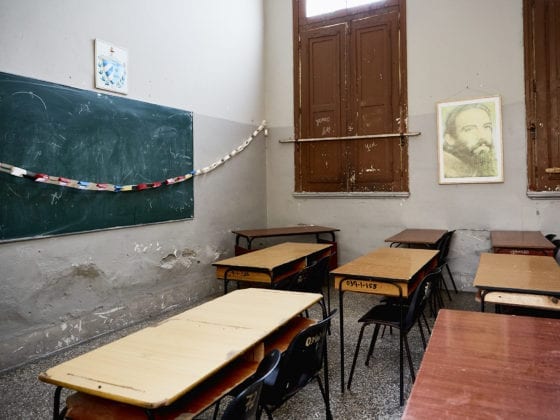Like a stack of Dominoes, school buildings across the country closed for the year. Overnight students lost their daily community, teachers had to build online classrooms and parents became home educators.
While social media has been flooded with comical memes, interviews and posts of parents struggling, the reality is your kids’ teachers don’t want to be at home either. Your teachers want to be in school and, like you, are attempting to make the best of a tough situation.
Since traditional classrooms aren’t possible, and given the increased need for parental involvement, here are three things your teacher wants you to know.
Take this time to learn about your kids.
Through home learning, you’ll see what your children can do academically. As you sit with them, you’ll see where your kiddos are struggling with a concept, can’t articulate what they’ve heard or read or still don’t understand something after several explanations. Don’t be disheartened. All kids have areas to grow in, and your next teacher will be grateful to hear where they can join in supporting your child.
You’ll also see how your kids respond behaviorally to challenges and times when they don’t understand concepts or instructions. Do they shut down? Complain? Get distracted? Get frustrated?
Welcome to what your teacher sees every day about how your child manages their stress and challenges. Remember, not all of your child’s frustrations are due to the newness of online learning. Some behavior stems from natural inclinations and is reflective of where your child needs to grow. Just like teachers, seek to find a work-around to help your child thrive.
Just like teachers, seek to find a work-around to help your child thrive.
Through online learning, you’ll begin to discern your child’s preferred learning style. In the classroom, teachers have the ability to prepare lessons with learning styles in mind. For visual, touch and movement learners, online platforms may be harder.
Don’t despair! While it’s best to teach within a child’s preferred learning style, it’s still beneficial to teach with all learning styles. The brain needs different engagement and to work through challenges. Just because online learning may not be the best way for your child to learn doesn’t mean they’ll get nothing out of it.
Build in time to practice life skills.
Your teacher is not able to teach at the same capacity online. No matter how many assignments they create, your child will still probably have extra hours in their day. When online learning assignments are complete, take advantage of this time. Here are a few creative ideas:
- Bake cookies (and talk about fractions.)
- Cook dinner (and talk about hot & cold properties.)
- Wash laundry (and show kids how to sort colors and fold.)
- Clean the bathroom (and talk about germs, cleaners and being thorough.)
- Pot plans (and talk about soil, sun, water, space in the pots and drainage.)
- Set the table (and talk about silverware placement and how other countries set their tables.)
Practicing everyday activities together will prepare children to successfully do their laundry, cook food and care for their home. Engaging auditory faculties will also prepare visual and touch learners for future jobs in which they’re only given spoken directions.
Give yourself, and your teacher, grace.
If at first you don’t succeed with online learning, then restart your web browser and make sure your caps lock isn’t on! Honestly, give yourself and your teacher grace. Both of you are juggling new platforms, and your teacher is desperately trying to learn and stay a step ahead of you. Before getting upset and firing an email from your iPhone, believe the best and troubleshoot once more.
Your teacher is desperately trying to learn and stay a step ahead of you.
When it comes to grades, offer your teacher some love here, too. It’s nearly impossible to offer grades that are consistent with what your kids were doing in their regular classroom. Try and remember that scores are more of a snapshot of your students’ progress versus a description of where they’re at or how they’re growing. Besides, the learning you’re doing watching where your child needs to grow and be supported is so much more valuable than a letter grade.
Teachers are unsung heroes behind our country’s workforce. They are for you and want to see you and your child succeed. Instead of spending the remainder of the school year frustrated, endeavor to learn about your kids, teach them life skills and offer everyone a lot of grace along the way. This unexpected home learning journey could be more enjoyable than you initially thought.
How has the transition been to homeschooling? In what ways can you be supportive and encouraging to your child’s teachers during this time?
Image via Chaunté Vaughn, Darling Issue No. 24











